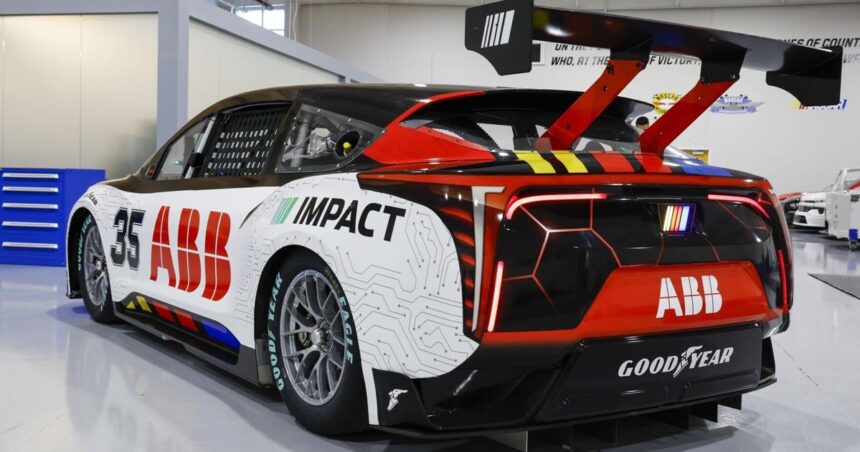CHICAGO — The unique experience of a NASCAR race involves the loud engine roar, car sounds, and the speed of cars racing past at over 150 mph.
NASCAR introduced its first electric racecar in downtown Chicago, a departure from the traditional thunderous engine noise when drivers start their engines.
The collaboration between NASCAR, Chevrolet, Ford, Toyota, and ABB showcased a high-performance electric vehicle to engage fans and promote electric racing.
Riley Nelson, NASCAR’s head of sustainability, emphasized the goal to make electric vehicles and electrification in racing appealing, exciting, and accessible.
The $1.5 million prototype was revealed, with retired NASCAR driver David Ragan being the first to test drive it. The plan includes showcasing the car on the Chicago street course for fast laps.
People are also reading…
Ragan described the new experience with the electric car, highlighting the different sounds and lack of exhaust overpowering everything else. The uniqueness of the electric vehicle left a strong impression on him.
Unlike traditional sports coupes, the new car is a crossover utility vehicle with aerodynamic features such as a large wing at the back.
Although the electric car accelerates faster and stops nearly instantly, its performance at Martinsville Speedway indicated a slightly slower lap time due to the added weight. Ragan suggested that the car has the potential for even faster speeds.
Eric Warren from General Motors explained the goal to use racing as a platform to educate fans about energy conservation and sustainability through electric vehicles.
Switching to electric vehicles in racing can significantly reduce carbon emissions and promote cleaner energy usage. The introduction of electric cars in NASCAR has the potential to attract more fans and create a new racing experience.
The new sustainability plan by NASCAR includes collaboration with ABB to establish electric vehicle charging stations at tracks owned by NASCAR. The plan also involves using sustainable racing fuel by 2028 and achieving net-zero operating emissions by 2035.
Expanding into other eco-friendly racing options like hydrogen-powered cars and hybrid engines indicates NASCAR’s commitment to sustainable practices.
The growing interest in electric vehicles and the push for clean energy solutions show a positive shift towards a more sustainable future in racing and beyond.





